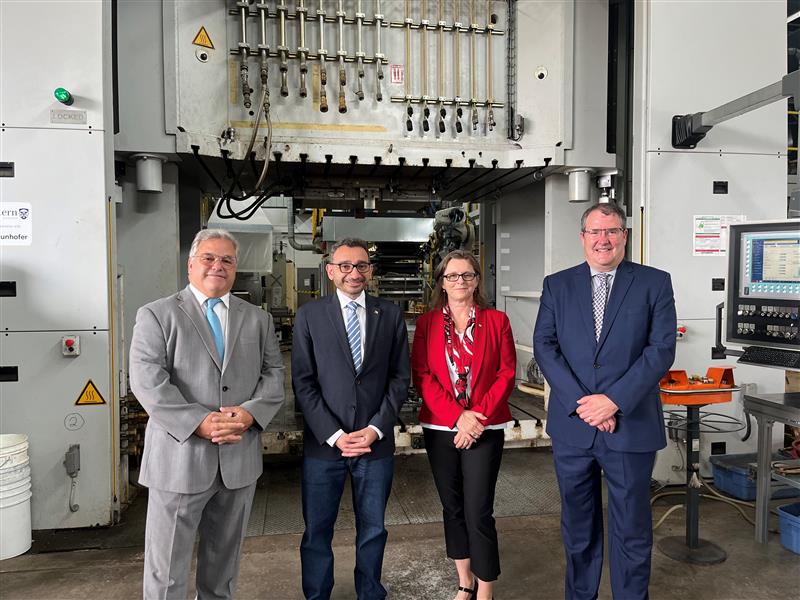Transport Canada has launched a new incentive to make it easier for businesses across Canada to purchase zero-emission vehicles.

On Monday, Transport Minister Omar Alghabra was at the Fraunhofer Innovation Platform for Composites Research in southeast London to announce the program for medium and heavy-duty zero-emission vehicles.
The program provides “incentives worth approximately 50 per cent of the price difference between an electric vehicle and a traditional vehicle, ranging from $10,000 to $200,000, depending on the type of vehicle applicants apply for.
“In Canada, medium and heavy-duty vehicles are a big source of pollution on our roads. Many Canadian businesses want to help reduce pollution by making the switch to a zero-emissions vehicle, and our government is committed to ensuring that where feasible, 100 per cent of medium and heavy-duty vehicle sales are zero-emission by 2040,” Alghabra said.
“This new program will help Canadian businesses, organizations and governments make the shift to medium and heavy-duty vehicles.”
Alghabra said the government is investing almost $550 million through the program to help companies make the switch.

Get breaking National news
The incentive will be applied at the point of sale by a dealership or other authorized sellers such as Original Equipment Manufacturers and vehicle finishers and distributors.
The government said it would appear directly on the bill of sale or lease agreement on eligible medium- and heavy-duty ZEVs purchased or leased on, or after, the vehicle’s eligibility date.
Applications to apply for the incentive will be available in the upcoming months, with requests for reimbursement available in the fall of 2022.
To be eligible under the program, the vehicle must meet all of Canada’s Motor Vehicle Safety Standards and be meant for use on public streets, roads, and highways, and the applicant must be a registered Canadian business based in Canada.
Zero-emission vocational on-road trucks, like refuse or dump trucks, will be eligible for incentive as will yard/shunt and drayage trucks. Zero-emission shuttle or coach buses will also be eligible.
But not all medium or heavy-duty vehicles are included, with Transport Canada saying it may exclude certain types of vehicles like transit buses, school buses, recreational vehicles, or off-road vehicles.
The transport agency said only new vehicles are eligible for the incentive, with the funding not available to those looking to convert an existing internal combustion engine vehicle to a zero-emission vehicle.
Daniel Breton, Electro Mobility Canada president and CEO, said the incentive is a great way to push Canada towards reducing a large amount of greenhouse gas emissions and creating sustainable jobs for Canadians.
“Medium and heavy-duty vehicles contribute to black carbon and nitrogen emissions. To give you an example, between Monday and Saturday, diesel trucks on highways emit approximately 80 per cent of black carbon emissions, while representing only one per cent of the vehicles on the road,” Breton said.
“Electric vehicles and zero-emission vehicles go far beyond cars, and we are pleased to see attention being given to transitioning medium and heavy duty vehicles to electric transit vehicles, school busses, trucks, marine vehicles, off-road vehicles, and soon we will see zero-emission planes.”
With files from Global News’ Andrew Graham












Comments
Want to discuss? Please read our Commenting Policy first.